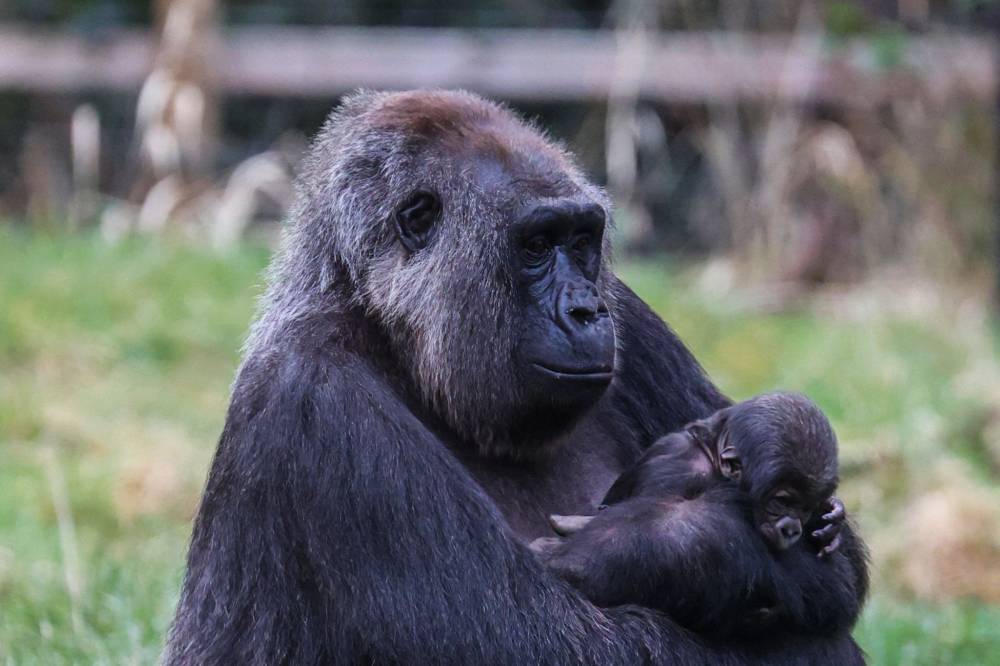Second gorilla infant joins troop at London Zoo
New addition to the family

LONDON - A critically endangered western lowland gorilla has been born at London Zoo, the second of the apes to be born at the facility in a month, the zoo said recently.
Western lowland gorillas, which inhabit dense and largely remote rainforests in west and central Africa, are classified as having a high risk of becoming extinct.
Numbers have declined by more than 60 percent over the last 25 years, due largely to deforestation, poaching and disease, according to the Zoological Society of London.
The baby, whose sex has not been confirmed, was born on February 8 to mother Effie and was delivered in the gym area of Gorilla Kingdom.
The baby gorilla's birth comes three and a half weeks after that of another infant to a gorilla called Mjukuu.
"We're over the moon to have a second gorilla infant born here at London Zoo in the space of a month," London Zoo's primates section manager Kathryn Sanders said.
"These babies are an important addition to the conservation breeding programme for this endangered species, and just as crucially, great additions to our troop."
Western lowland gorillas, which have brown-grey coats and auburn chests, are slightly smaller than other gorilla subspecies.
They also have wider skulls with more pronounced brow ridges and smaller ears.
They live in family troops, led by a male silverback, known to reach heights of up to 6 ft (182 cm) when standing upright.
The exact number of western lowland gorillas is not known as they inhabit some of the most dense and remote rainforests in Africa but the World Wildlife Fund estimates there could be about 100,000. - AFP














